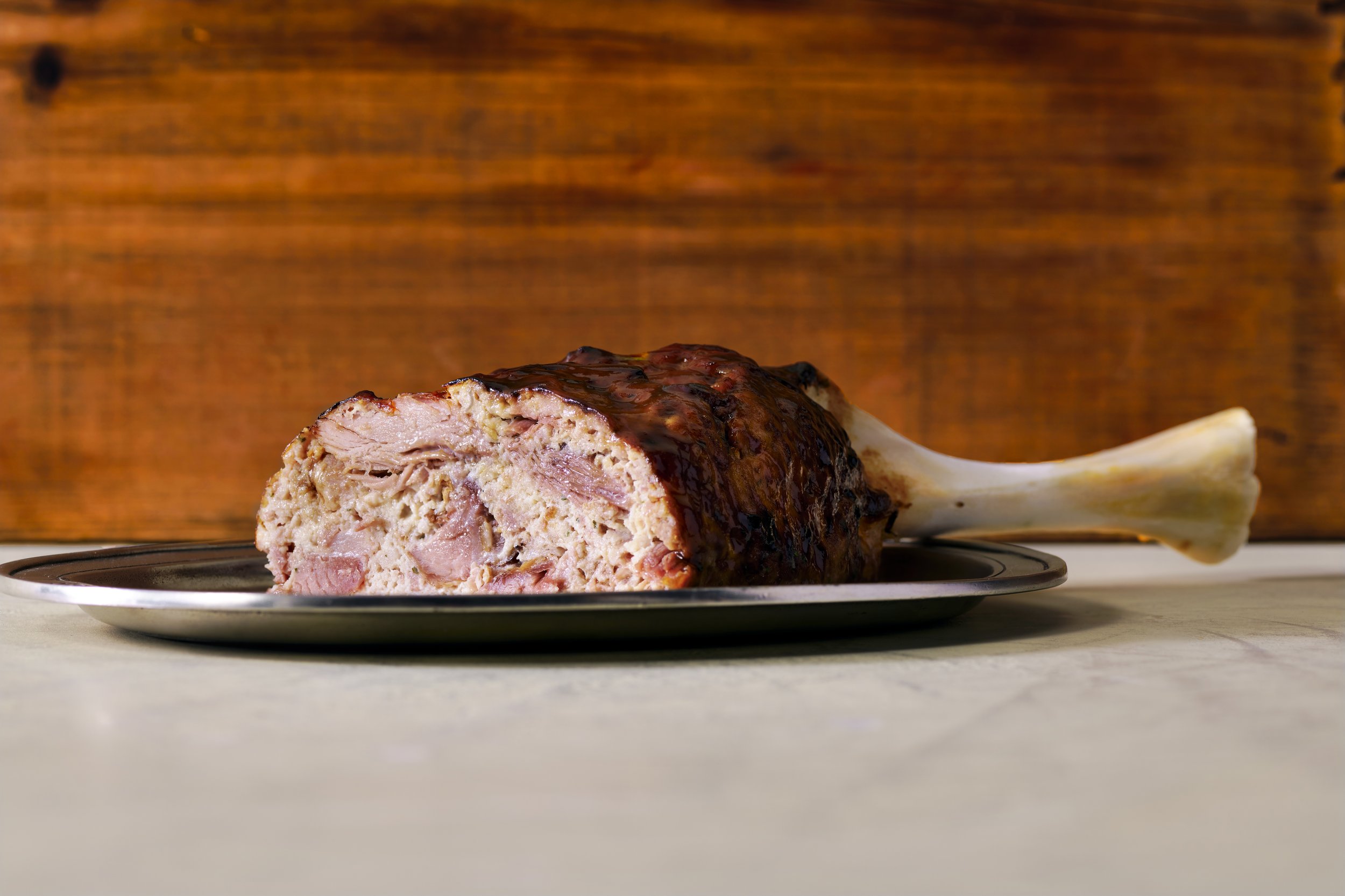The History of Farce: a Joke or a Technique
Farce: forcemeat/stuffing OR an absurd event/parody. This is the classic question: What Came First: the Chicken or the Egg? In this case, who used it first? The Theatre or the Kitchen?
Originally a Latin verb meaning to stuff, the French used the word as a noun to describe comedic bits inserted (stuffed) between scenes in religious plays. France and Italy both adopted their own versions of theatrical plays with buffoonery and absurdity that turned into a specific genre. Farces were essential in entertaining crowds by eliciting laughter (think: clowning, acrobatics, reversal of social roles, and indecency - so basically slapstick comedy).*
By the time “farce” reached England in the 14th century, it was first used in the culinary world a few centuries before it was used in the acting world, after it was already well-established in France and Italy. Farce became a synonym of forcemeat, meaning finely chopped and highly seasoned meat or fish that is either served alone or used as a stuffing. It became an extravagant way of impressing and amusing diners as it was a skill to make things that looked like things from other things. However, it wasn’t considered silly or humorous in the kitchen; it showed true craftmanship and creativity. For instance, look at the jambonette.
The jambonette is a farce made from pork that is made to look like a ham leg, complete with a Flintstone-esque bone jutting out. It’s basically a meatloaf (meatham? hamloaf?). An extravagant exaggeration of ham, made from ham, deliberately and absurdly delicious.
Oddly enough, farce is not the only word that has roots in both theater and cookery. Satire entered the English language at a similar time as farce. It is thought to have Latin origins from lanx satura, meaning a full plate. Satura, or satur, means full of food or sated. I’m no historian, but food and theatre have always had a crossover so it makes sense that some words are shared.
So to answer the question? It seems as if theater used the term first, but the term is still used in the culinary world whereas satire, slapstick, or comedy is now used to describe films or shows.
*To credit Ancient Greece: farces have been around since the early days of Greek Theatre. Aristophanes wrote comedies with larger-than-life characters, ludicrous situations, and raunchy humor.


